"No more Elisas Martinez", 28 years of work for the recognition of the rights of sex workers in Mexico
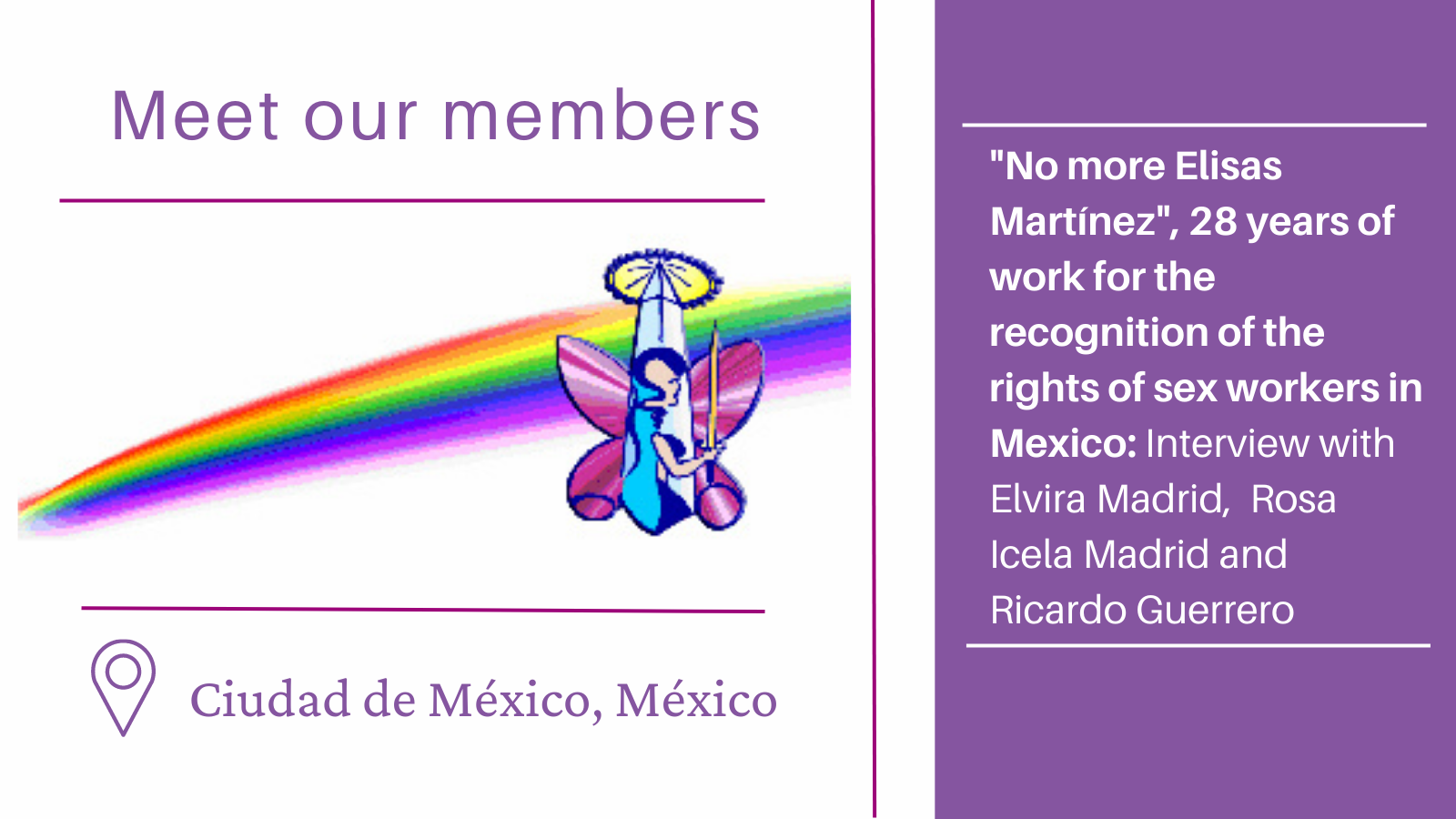
Brigada Callejera de Apoyo a la Mujer "E.M.A.C" is a GAATW member in Mexico. Vivian Cartagena from the GAATW Secretariat conducted this interview with the organisation’s programme coordinators, Rosa Icela Madrid and Ricardo Guerrero, in May 2023 to better understand their work, history and context. The interview was condcuted in Spanish and translated into English; it was reviewed and supplemented with the participation of Elvira Madrid Romero, President of Brigada Callejera de Apoyo a la Mujer, E.M. A.C.
Leer la entrevista en español aquí.
Vivian: Thank you very much, Rosa and Ricardo, for taking the time to talk to us. I would like to know more about Brigada Callejera. What is your story? What were the reasons for founding the organisation?
Rosa: Brigada Callejera was established 28 years ago but we have been working on the streets for more than 30 years. It began with a research project with Professor Francisco Gómez Jara. In the late 1980s/early 1990s, we conducted research in La Merced, the largest area in Latin America where sex work is carried out. One of our questions was whether sex workers used protection when they had sex. Some women responded that they sometimes had 5 to 8 or more unprotected intercourses a day. That, among other things, worried us. When the research was completed, we urged the professor to highlight the work because, at that time, HIV was a growing problem. Unfortunately, he wasn't interested.
We, however, began to give talks on condom use. Our team went from 20 people to 8, but sex workers began to trust us with their stories of how they came to sex work. Some had been victims of human trafficking and told us how they saved themselves and got out of it. It was a difficult job. Not only did we not know what to do, but nobody wanted to take on this work because they didn't want to get in trouble. We accompanied the compañeras [comrades, referring to the sex workers] in filing complaints. In 1995, we were advised to establish ourselves as a legal entity due to the risks we were facing. At that time we called ourselves brigade; we would say, "let's go on a brigade" and we walked in the street.
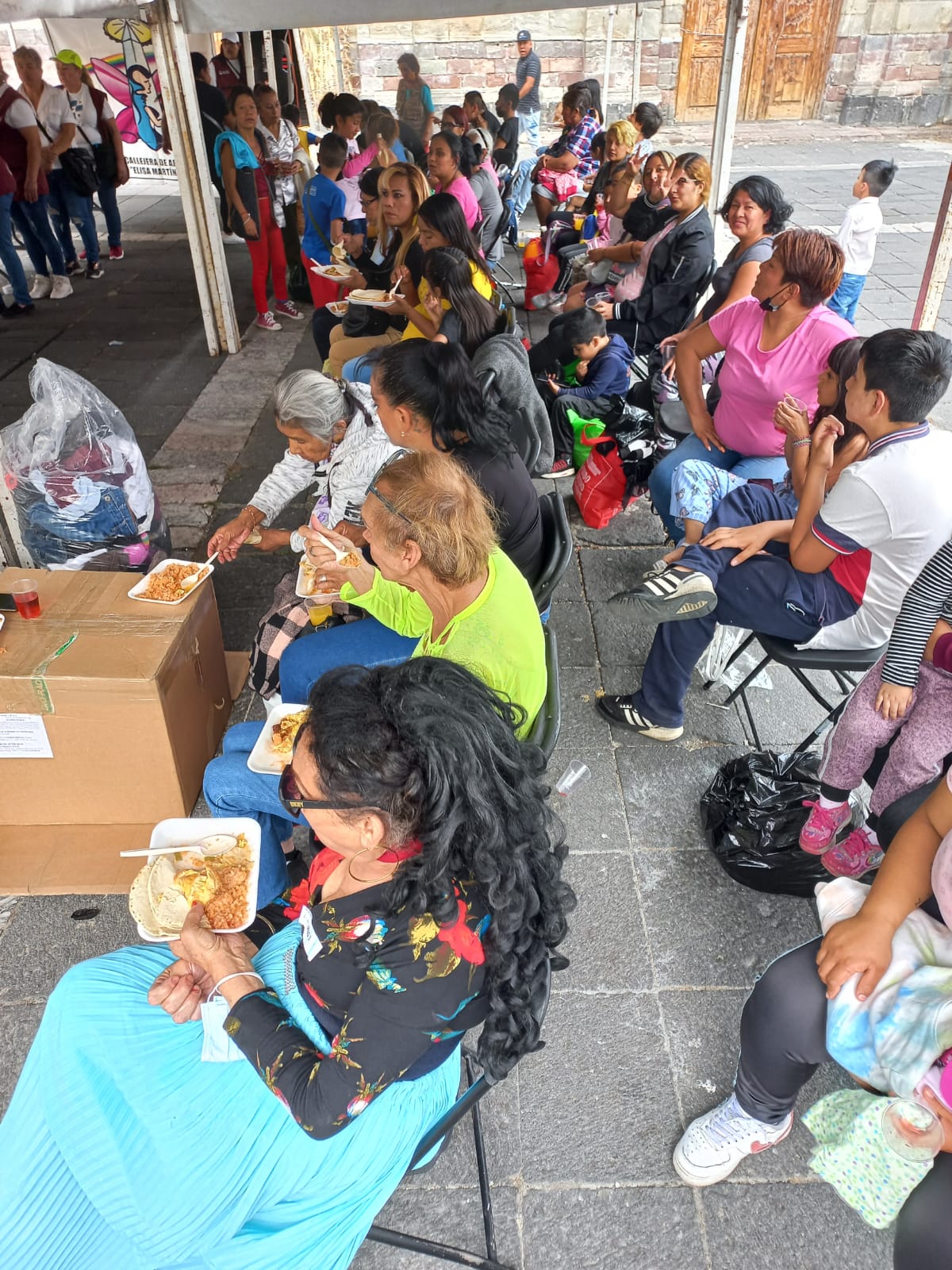
Eventually, only four people remained and Brigada Callejera "Elisa Martinez" A.C. was born. We named it after Elisa Martínez, one of the first cases we came across. Martínez was a sex worker who was in the terminal phase of AIDS. Due to the lack of knowledge about HIV, she was kicked out of hospitals because no one wanted to touch her. Therefore, her human rights were violated. She didn't have a family support network either. After this case, we focused on HIV prevention and the defense of human rights. We watched the rights being violated by the authorities, by madrotas [madams] and padrotes [pimps], who often beat our fellow sex workers, poking them with knives or ice picks. So we started denouncing them.
At that time, Brigada Callejera had earned the respect of the community that we work with. Initially, we had asked for support from La Soledad Church, the church that sheltered us during our meetings. Father Héctor Tello said that the mass on Fridays was for pickpockets, sex workers, and the homeless; those people that nobody wanted. It was a mass for people excluded from society, with a "double standard". Through this mass, he gave them spiritual support. However, we told him that they also needed to know their rights in order to assert themselves.
Our first community centre was in this church, where we built a doctor's office, a community kitchen, a library, a psychological office, and two small houses in the back where we could accommodate our compañeras who were victims of trafficking or those who denounced the authorities. However, the archdiocese demanded that we must move out because we were denouncing the government and the delegation had decided that what we were doing was wrong. Father Tello disagreed and explained how we are building a support network to prevent sex workers from suffering violence from the community. Unfortunately, they sent him to another community and since then we have been working along Corregidora street. Here we have our community centre, as well as a micro-clinic for primary and secondary healthcare, psychological support, acupuncture, literacy programme, legal counselling, and for organising workshops on the prevention of human trafficking, on community journalism called "NotiCalle", among other activities.
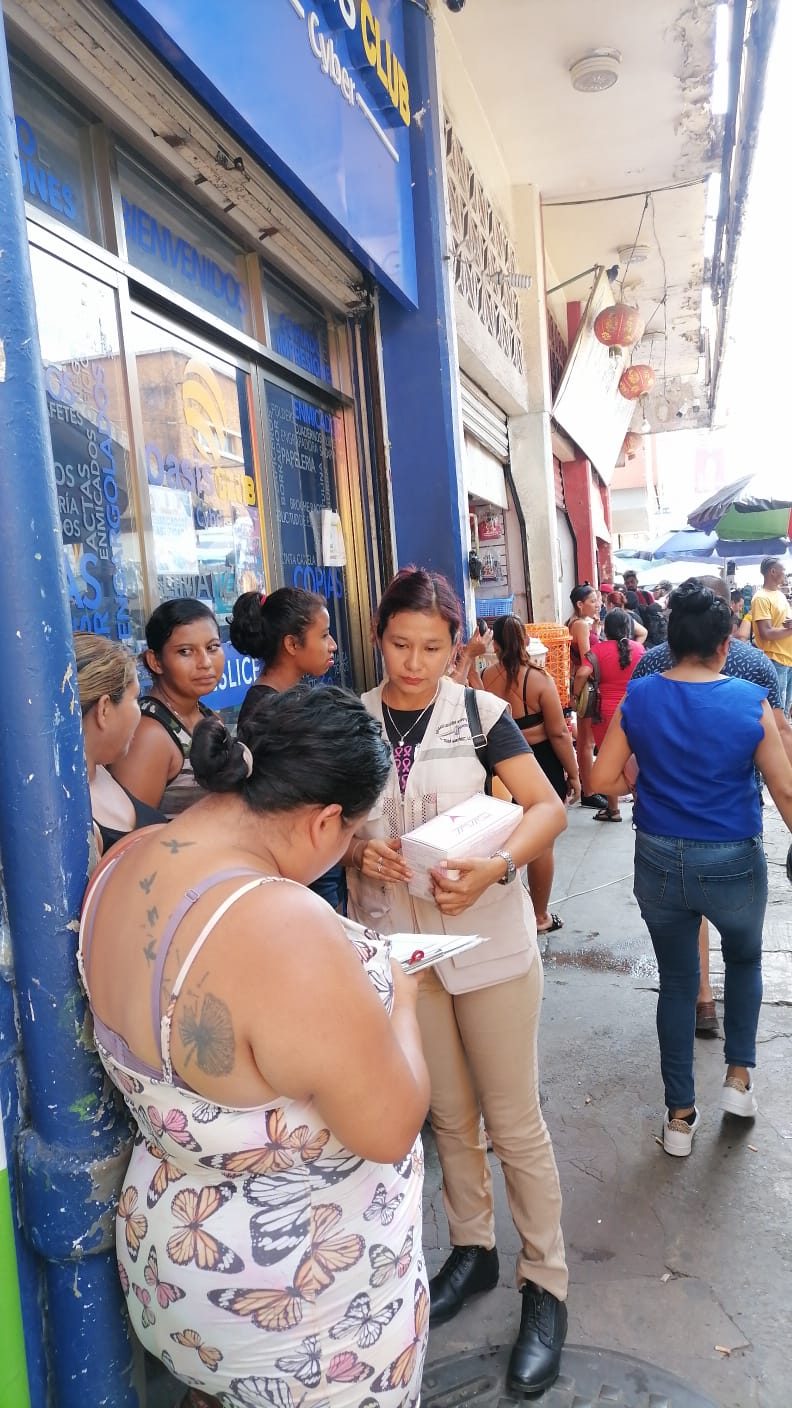
Another struggle that took place was against the health control that forced sex workers to have weekly check-ups to verify that they are healthy so that they get their credentials stamped. These check-ups are sometimes just for economic purposes, as they charge a certain amount of money but do not offer Pap smears or HIV tests. So, we argue that the Mexican government is acting like a pimp because healthcare should be free. Sex workers should not be charged for these sexual and reproductive health services.
In addition, the Mexican Sex Work Network was formed in 1996 and has held meetings every year since then. In these meetings, we discuss the situation in each state and make a work plan. We are currently working on a 25-year plan (which began in 2006) that has allowed us to network in 28 states. There are several coordinators in the network with whom we work. The coordinator Sor Juana Inés de la Cruz brings together groups, associations, and cooperatives of independent sex workers and defends the rights of cisgender sex workers. The coordinator Rubí Arzola brings together transgender sex workers while the coordinator Francisco Gómez Jara brings together groups that are not sex workers but work in defense of their human and labor rights.
The Mexican Sex Work Network has played an important role in the fight against human trafficking and has helped us rescue several women and their children. In these rescue missions, we sometimes put our own lives at risk because we don't know how it will turn out. In some cases, traffickers create an emotional connection with their victims that may result in them wanting to stay with their traffickers. Furthermore, the lack of government support has contributed to the many obstacles to this important work.
Another aspect in which we have been working throughout the 28 states where we have an impact is the fight against human trafficking. However, there are states in the north that are dominated by organised crime, so we have decided not to go there for the safety of our community.
Vivian: Yes, there are some risks in these interventions. It has been very interesting to hear about the trajectory of Brigada Callejera over the years, and its approaches. How do you incorporate the voices and lived experiences of sex workers and victims of trafficking into your work?
Rosa: We currently have 18 comics that are used to spread awareness about preventing human trafficking. The comics are based on true stories where former victims describe how they lived through the trafficking process and how they managed to free themselves. We deliver these comics to schools where the risks of being trafficked are high. For example, with the comic “Trata por Internet” [trafficking via internet] we expose how young women are deceived on social networks to introduce them to commercial sex. Another example is “Flores de la Montaña” [flowers of the mountain] which exposes how, in some extremely poor Mexican states, they sell their daughters so that many end up in places where commercial sex is practised.
We work in states with rates of extreme poverty and sex work such as Guerrero, Oaxaca, Michoacán, Puebla, Tlaxcala. Tlaxcala is one of the states where children are culturally prepared to be pimps.
About seven years ago we started measuring the impact of comics, specifically in the areas where we had been giving workshops on the prevention of human trafficking.
We also work on education. Initially we had a utopian vision of eradicating sex work, but then we realised that sex work will not end if inequalities continue, if the distribution of wealth is unfair. Many women do not have opportunities for education, employment and effective development. Therefore, we decided to support them to achieve better conditions and understand their rights. We encourage them to resume or start their education. If the compañeras never had the opportunity to enter the educational system, we remind them that it is never too late. We combat this structural cause so that their children can study and get out of the vicious cycle. Also, if they are doing this work to support their children, we must give them the tools to be able to enter other sectors. Additionally, we encourage them not to live in the same areas in which they work, because it does not allow their children to develop in another environment.
Jaime Alberto Montejo Bohorquez, one of our founders, had the ability to systematise the information, collecting the ideas of each compañera. By exploring comics, research, and books, sex workers and survivors of trafficking identified and recognised themselves in them. This was effective because one of our main goals was not to impose anything on them. After doing successful rescue cases, Jaime would give women tools so they could empower and save themselves, even if the big mafias were involved.
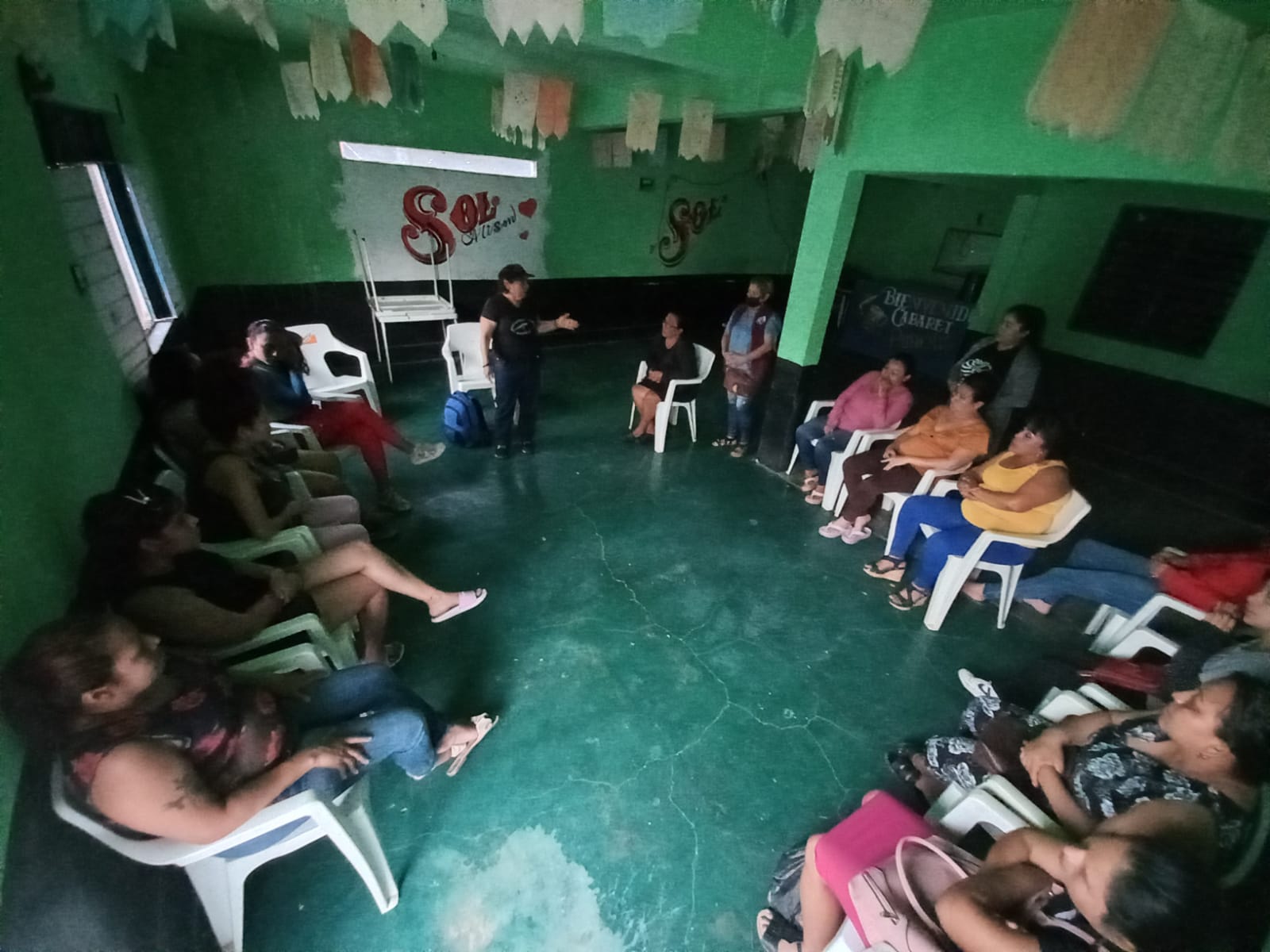
Vivian: Can you share one achievement you're proud of?
Rosa: I would say it's Judgment 112/2013 where sex work was recognised as informal work at a time when for the government everything was human trafficking; the judgment explains that human trafficking is very different from sex work. With this recognition, the Ministry of Labor and Employment Promotion (STyFE), grants them a license and a credential where they cannot be detained since it is a document that supports their profession.
All of this has made it possible to create a support network for sex workers and trafficked persons, but they themselves have done the work. They have allowed our organisation to grow by inviting and teaching us. Working with them through unfortunate experiences of violence has allowed us to have a broader vision of the situation in Mexico. We are very convinced that the human and labour rights of sex workers can be defended to prevent and combat human trafficking. We believe that all forms of exploitation must be abolished and not only sex work.
Vivian: You've mentioned some of the challenges women face with regard to health, stigma, and feelings of guilt. Are there other challenges they face?
Rosa: Leaving your family because of patriarchal violence is not something that everyone can do. Breaking free of this is one of the first challenges. Deciding that they no longer want to experience this situation of violence is something they have acquired on their own, no one has taught them. Sex workers, however, develop differently from victims of trafficking. Trafficking occurs against one's will and through a process of deception. The psychological damage left on victims is severe. In addition, the members of Brigada Callejera also need emotional support because the situations we face in our work are getting tougher every day.
Ricardo: Part of what we see daily, both in human trafficking and in sex work, is denouncing and confronting the State. Human rights, however, are not defended due to the stigma and lack of empathy from public officials. We want to win more protections in other states so that the recognition of sex work in all of Mexico becomes part of the legislation.
Another challenge is the faction of abolitionist feminism that doesn't have empathy with these stories and doesn't consider the real needs of women who perform sex work on the streets, due to a classist vision where they have social privileges. The ideological and legal struggle against the advancement of public policies in favor of sex workers is the most difficult part of the system to attack. For example, last year there was a serial rapist who was denounced, but it took more than a year to obtain a sentence even with all the evidence against this person. The lack of justice for sex workers makes them report less and less. As an organisation, we encourage them and accompany them throughout the process so that they have access to justice. We support them to make a complaint so that we can counteract this problem.
Vivian: Exactly, access to justice, especially in Latin America, is one of the biggest challenges that victims of trafficking suffer due to exploitation and violence. Rosa and Ricardo, I don't have any more questions. Is there anything you'd like to add?
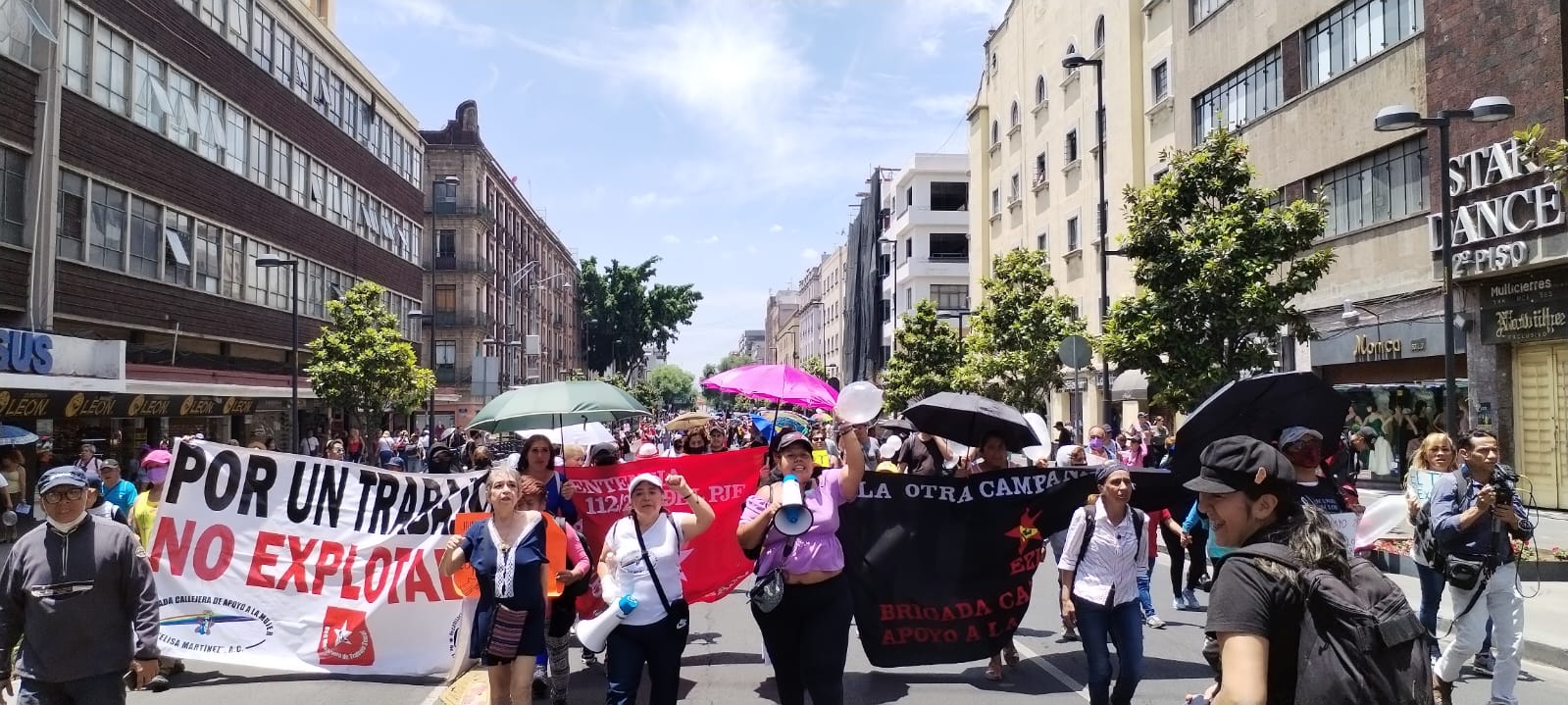
Rosa: We would like to express our gratitude as it has been difficult to find organisations focused on this issue in Mexico. When we became part of GAATW, it allowed us to stand up to the authorities. We could say that we were no longer alone and that we had the support of another international organisation that could help us spread the word about what was happening in our country. The exchange of experiences has been revealing and has reaffirmed that what we are doing is correct. At Brigada Callejera we have many challenges, but we will continue to face and defend the human rights of victims of trafficking and sex workers.
Ricardo: I would like to reinforce what Rosa said about fighting against the structural root causes. We defend the right to sex work, women's rights in general, and the rights of sex workers in particular. And as Jaime commented on our 25-year plan, "We fight for a world that lives up to our dreams," and our dreams are big.
Elvira: We also want to share that we have our monthly newspaper produced by fellow cisgender and transgender sex workers, and survivors of human trafficking, in which public opinion is generated from their vision.
Vivian: Thank you very much for this wonderful conversation, the work you do at Brigada Callejera is truly admirable.

